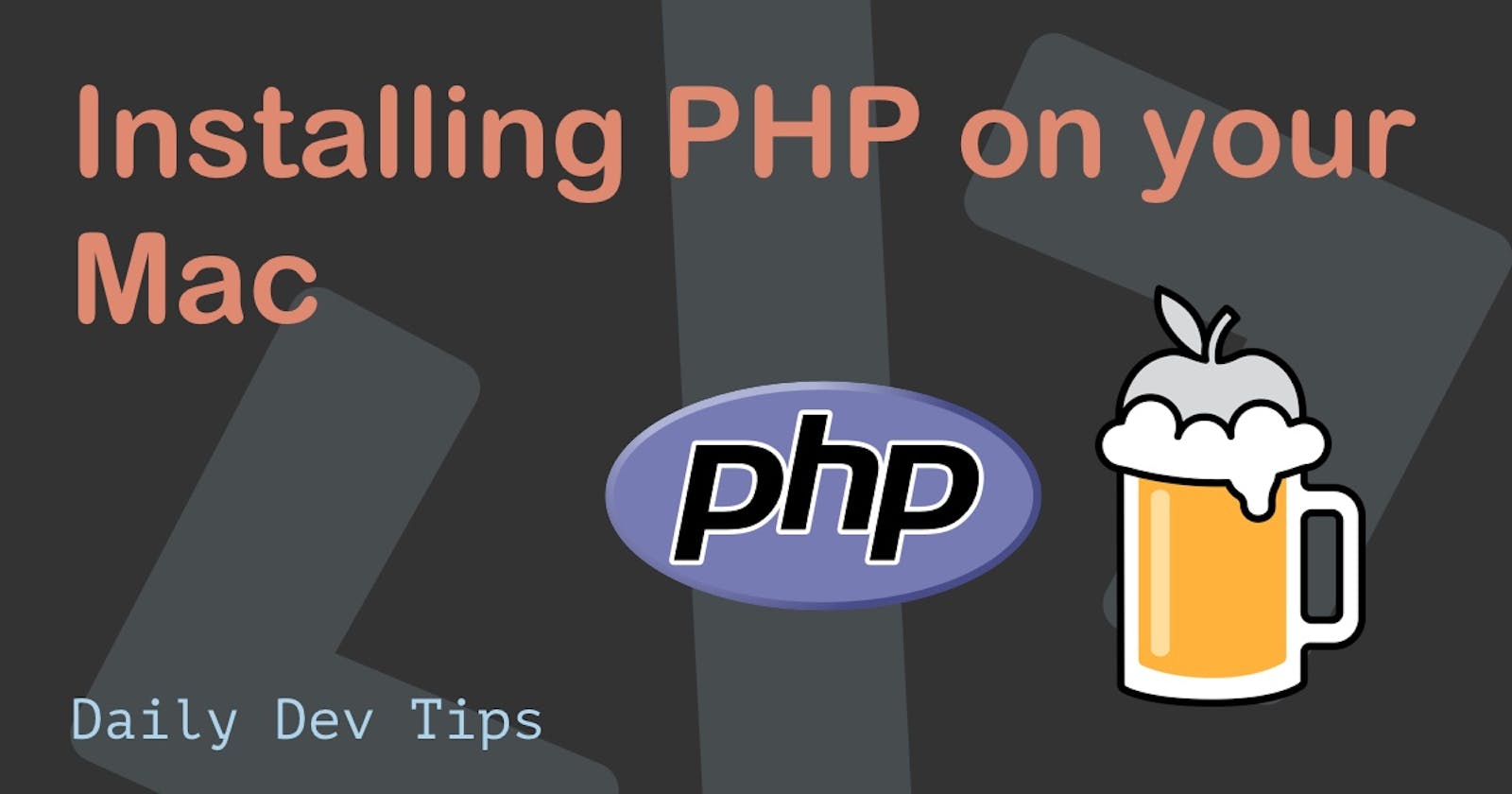I've got a brand new Mac yesterday and noted that it states PHP will be removed from future Mac OS versions by default.
I'm pretty surprised they go this way. By default, it comes with PHP 7.3, and I needed 7.4 for my project so let me guide you through the process of setting up PHP on your Mac!
Mac's warning looks like this:
WARNING: PHP is not recommended
PHP is included in macOS for compatibility with legacy software.
Future versions of macOS will not include PHP.
However, don't be scared. It's quite easy these days to install PHP, and even install multiple versions if you like.
Installing Homebrew
When it comes to installing software on your Mac, there is literally only one package manager we need, and it's Homebrew.
It can install any package or software you want and even install specific versions.
Read more on Homebrew - Package manager for Mac.
Quick guide: Run the following command in your terminal:
/bin/bash -c "$(curl -fsSL https://raw.githubusercontent.com/Homebrew/install/HEAD/install.sh)"
Installing PHP with Homebrew on Mac
To install PHP, we can run the following command:
brew install php
This will install the latest stable version of PHP (At the moment of writing, this is PHP 8.0).
Before running any brew commands, it's a good habit to run the following commands first. These will check if brew is all up to date and running the latest versions.
brew update
brew doctor
Installing PHP 7.4 with Homebrew
In my case, I wanted to install PHP 7.4 since it's the version our server is running.
To install a specific version, we can use the @ notation.
brew install php@7.4
This will run the installer, and it should end with a success notice in your terminal.
However, even though this installed PHP, it didn't change our running instance yet.
So if we run the php -v command, we might still see a different version like PHP 7.3.14 (CLI) or whatever you have installed.
To fix this, we need to link the correct PHP version.
Switching PHP Versions with Homebrew on Mac
Now that we installed versions, we can easily switch between them using the link command.
First, check which version of PHP is currently running:
php -v
# PHP 8.0.1 (cli) (built: Jan 8 2021 01:27:28) ( NTS )
# Copyright (c) The PHP Group
Then we can unlink that version by using:
brew unlink php@8.0
The next step is to link the version we want:
brew link php@7.4
It will tell you to run a script to add the path:
echo 'export PATH="/opt/homebrew/opt/php@7.4/bin:$PATH"' >> ~/.zshrc
This will make sure the right PHP version is loaded, now if you run php -v again it should show:
# PHP 7.4.14 (cli) (built: Jan 8 2021 01:35:35) ( NTS )
# Copyright (c) The PHP Group
And there we go, we switched to the PHP version.
Php -v is still showing the wrong version
I had the issue when upgrading from 7.4 to 8.0 for my demo that I kept seeing 7.4 when running php -v. To fix this manually, remove the old line in your .zshrc file.
nano ~/.zshrc
Remove the line that points to your old instance of PHP.
export PATH="/opt/homebrew/opt/php@7.4/bin:$PATH"
Note: This is an example of my version. It might differ from what you installed before.
Thank you for reading, and let's connect!
Thank you for reading my blog. Feel free to subscribe to my email newsletter and connect on Facebook or Twitter

